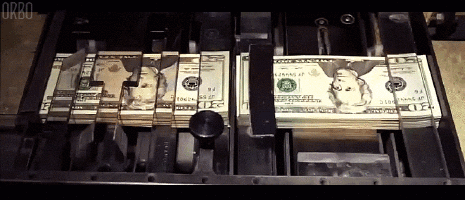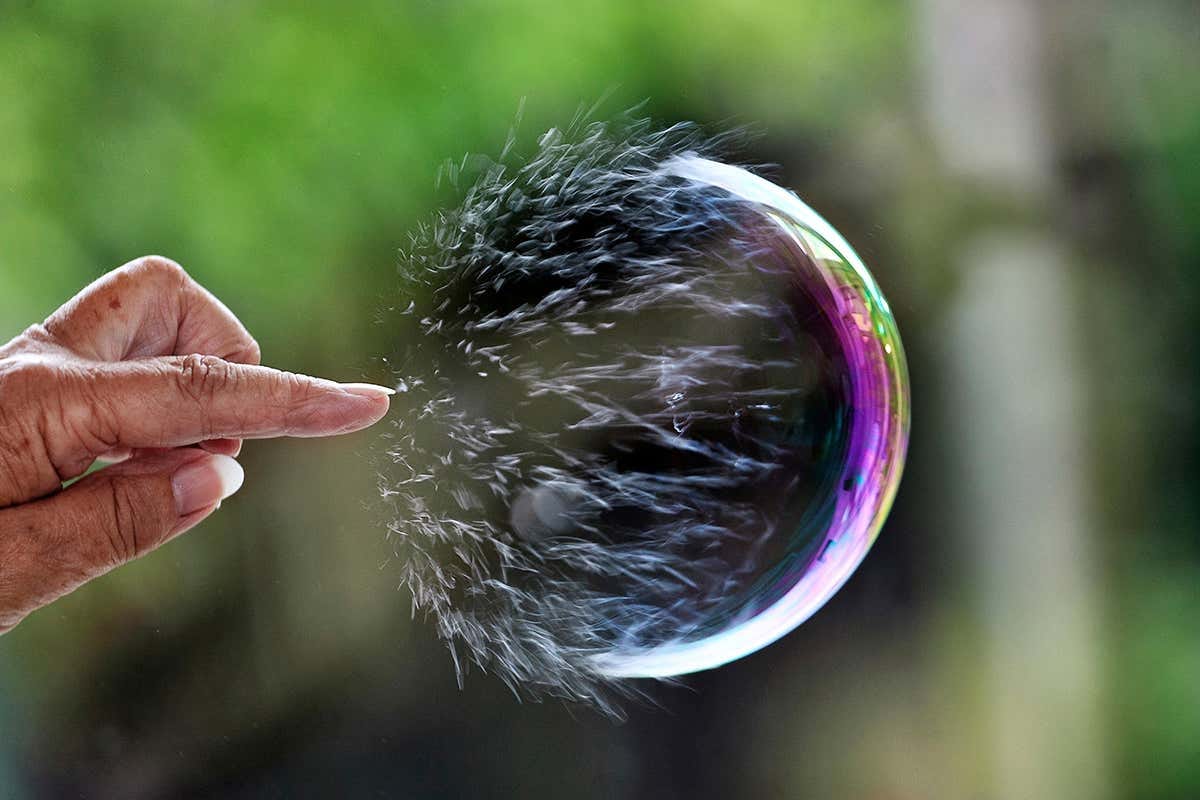Why's it so hard to figure out how many people watched Stranger Things?
Maya Hawke, from Stranger Things, would like to know.
Hello Searchers,
Happy Friday, we’ve got a new one for you. As a matter of fact, we’ll have a new one for you not just this Friday, but for the next three after it. Unless an asteroid hits New York City (specifically, near the Wall Street Bull), we’ll be keeping you company while you do your weekend chores this month.
In the newsletter
Today, we have some links to further reading if you enjoyed the episode. You can even read these articles if you didn’t enjoy the episode, I have no way of measuring your enjoyment, yet. In this edition, also, I write a little about how thinking about Hollywood’s possible internet-induced bubble made me think about the podcasting industry.
And as always, we’ll ask you to consider financially supporting our show if you feel we’re giving you $5 of entertainment this month.
The show this week
Maya Hawke, of Stranger Things, would like to know why won’t Netflix just tell her how many people watch the show? Plus the question underneath that question … might the internet have broken our TV industry? We get answers with help from Bloomberg’s Lucas Shaw.
You can see Maya’s acting work in Stranger Things, of course, or in the upcoming movie Wildcat. She’s also a talented musician, you can find her on Spotify.
Lucas Shaw’s newsletter Screentime is one of our favorites. Screentime is also throwing a conference in LA this October.
You were probably wondering about my thoughts about the podcast industry right now
It’s funny, this episode is about film and television, but a lot of the questions they’re grappling with over there are not dissimilar from conversations people have in the podcasting industry these days. The discussions you have in the moment of sobriety after a binge has burned itself out.
One quote we didn’t put in the episode was from this TV bigwig quoted in Vulture in June, who was describing their industry, but could’ve been describing ours:
“Everything became big tech — the Amazon model of ‘We don’t actually have to make money; we just have to show shareholder growth.’ Everyone said, ‘Great. That seems like the thing to do.’ Which essentially was like, ‘Let’s all commit ritual suicide. Let’s take one of the truly successful money-printing inventions in the history of the modern world — which was the carriage system with cable television — and let’s just end it and reinvent ourselves as tech companies, where we pour billions down the drain in pursuit of a return that is completely speculative, still, this many years into it.”
The quote felt a little familiar. Not 1:1, radio was never a money-printing invention, but … parts echoed.
Maybe, someday somebody will properly write about 2014-2022 in the podcast industry. There’s a book in there about how strange it all was. What happened essentially, when venture capital money arrived to a public radio medium.
I remain committed to uncertainty, but here’s where my mind is about that era right now.
My story was that I dropped out of college to work in public radio. Public radio was a weird thing to drop out of college for. The money was hilariously bad. The opportunities were few. There weren’t a ton of shows, and there weren’t a ton of opportunities to make new things. Some brilliant people did, but it was hard. Not because the people in charge were dummies (although we loved to say that at the time), but really just because resources (money mainly, but also air time) were finite.
In the very beginning of podcasting, money, for the first time ever, showed up. What was most amazing as a person inside of it was just watching all these people who had always seemed brilliant but stuck get these amazing chances. In some cases, salaries doubled, sometimes tripled. Some people who had great, long-harbored ideas got to make them. It was like an entire industry won the lottery. It was like watching a pile of mini-MacArthur Genius grants get handed out left and right.
That was the first few years. And then pretty quickly it was clear to many of us that we were in a bubble. There were just a lot of shows. The shows didn’t all seem to make sense. Even from the inside, it felt like this wasn’t going to last too much longer. At times it felt like the industry was making things for its investors more than it was for its listeners?
And then of course, the bubble popped.
But what’s weird about the aftermath of a bubble is … I’m trying to figure out how to express this to you. Before the bubble, maybe one listener was worth, to an advertiser, about a penny. During the bubble, that same listener was worth about six cents. Now, you guys are worth about … I don’t know … if we’re lucky, three cents? But somehow, to the people here, three cents feels less than one cent ever did.
For all of us out here making stuff in the three-cents world, it can feel bleak. How I try to think about it is that I’m not sure the six-cents world was entirely perfect either.
People having jobs and being well-compensated is great. But I think too much money flowing into an industry, too fast, is not always an unalloyed good in the long-term. Because people start building things for weird reasons.
I made a podcast about crypto last year for a bunch of reasons, but one was that I was thinking about money, and how the question of whether money is helpful or hurtful is sometimes answered by the speed with which the money arrives. And departs.
When the money flows in, there’s always someone saying the money is proving their point, and when it leaves, there’s always someone saying the same. I’ve been that person before, I don’t want to be that person again. I feel pretty confident money will come back into the system, not as much as before, but more than is here right now. And when it comes back, it’ll come back into a system where, my hope is, we’ll all be better about building things for audiences, rather than investors.
///
Anyway, if anyone’s wondering how many podcast listeners Search Engine has right now, I’m comfortable sharing that – oh shoot, sorry. I hit the Substack character limit for this section.
Further reading for this episode
Screentime with Lucas Shaw: Streaming Services Aren’t Hiding Hits. They Are Hiding Bombs.
Screentime with Lucas Shaw: Streaming Is Starting to Look A Lot Like Cable TV
The Town with Matt Belloni: Will Anyone Budge on Data Transparency in Hollywood?
The Hollywood Reporter: Creators Once Dreaded the Pressure of Ratings, Now They’re Fighting for the Data
Vulture: TV's Streaming Model Is Broken. It's Also Not Going Away.
Hollywood Reporter: Inside Amazon Studios: Big Swings Hampered by Confusion and Frustration







Surely you can leave the number of listeners in a comment though? :D
PJ - thanks for your poignant insights on the podcasting industry, particularly in light of the Spotify/Gimlet news from this week. I feel like you strike such a good balance between transparency and discretion when addressing this stuff.
A couple of thoughts on this (very good!) ep:
1) Not Millie Bobby Brown catching strays with Maya’s comment on actors “starting skin care companies”! 👀😆
2) Loved the nod to Stranger Things in the scoring of this episode. Very synth-y and totally 80s!
3) Maya’s character Robin is one of THEE BEST parts of Stranger Things season 4. So hopeful for an equitable conclusion to the strikes soon so we can collectively cry our eyes out with Season 5!